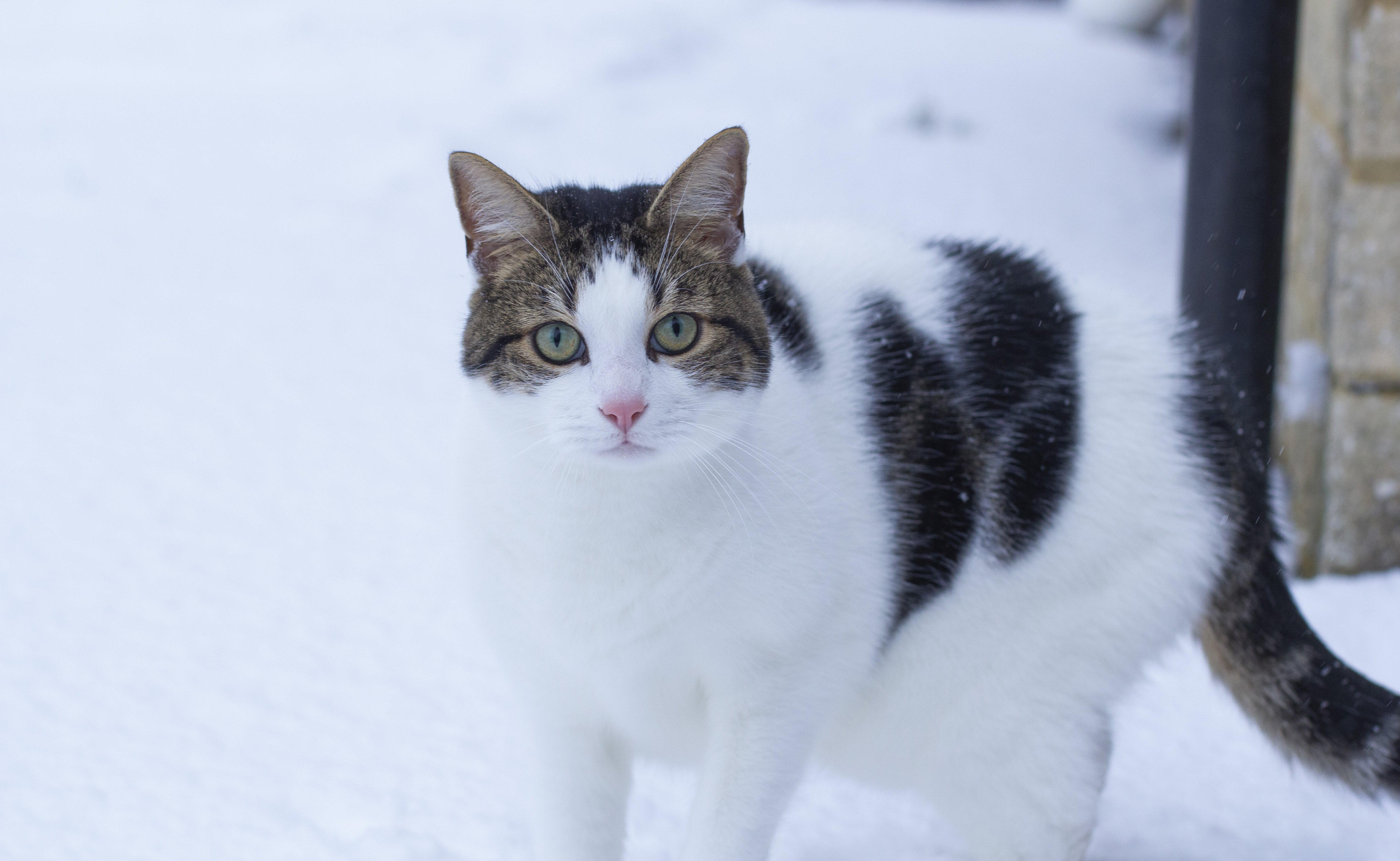
Looking after your cat in winter
Winter can be a fun time of year but it can also bring hazards for our cats, so it's important to be prepared.
Read our advice to help keep your cat warm, happy and safe from danger during the cold weather.
Do cats get cold?
Yes, cats can feel the cold. As they aren’t used to extreme weather, they can develop hypothermia and frostbite, so it’s best to keep your cat warm during winter months. Extra care should be taken for young and elderly cats, as they will feel the cold more than healthy adult cats.
Keeping outdoor cats warm in the winter
Most cats prefer to curl up inside when it’s cold out, but if your cat is the outdoors type, make sure they have a warm, dry place that they can always access, such as an outdoor shelter. Remember to also check garages, sheds and outbuildings before you lock them up, just in case your cat has taken refuge inside.
In extreme cold weather, try to encourage your cat to stay indoors as much as possible, particularly at night.
Keeping your cat warm in the house
Even if your cat prefers to stay indoors, it can still get chilly. Here’s our top tips for keeping your cat warm at home:
- Provide them with warm beds and blankets in a draught-free, cosy spot to curl up in
- Consider moving them into a warmer room when the temperature drops at night
- Make sure your cat has indoor litter trays for when it’s too cold to go outside, even if they aren’t used to using one
- Dry your cat off after an adventure in wet or snowy weather, so they can get cosy indoors
- Use a petsafe microwavable heat pad and slip it under a cosy blanket – it will stay warm for hours! Just remember to avoid electric blankets, as they can burn your cat and the the electrical cord can be dangerous if chewed.
Know when to bring your cat inside when it gets too cold
The great outdoors can bring lots of risks to your cat during the winter months, including:
- crawling into a car bonnet or engine to keep warm – when the engine is started up, cats can be seriously injured or even killed
- venturing somewhere they shouldn’t when the weather takes a turn and getting trapped without food or water
- a higher risk of road traffic accidents during the dark nights, as cats are more difficult to see on the road
It’s important to plan ahead when harsh weather is expected by keeping them inside as much as possible. Remember, if in doubt, keep your cat indoors and don’t leave them out overnight.
Note
Make sure your cat is fitted with a microchip and that your details are up to date so that if they do wander off in search of a warm place they can be traced back to you.
Indoor games
When it’s too cold to go outside, your cat may be restless so it’s important to keep them busy and active with toys, games, puzzle feeders or extra playtime. Not only will it prevent them from getting bored, staying active can also help to keep to them warm!
Find ideas on how to play with your cat.
Antifreeze poisoning in cats
Antifreeze is highly poisonous to cats and swallowing only a small amount can be very dangerous. As the temperature plummets, antifreeze is often used to de-ice cars. Because it tastes sweet, cats can be tempted to lick it off if it gets on their fur and paws. You can keep your cat safe from antifreeze by:
- wiping down your cat’s fur and paws when they come in from an outdoor adventure
- using non-toxic products or no antifreeze at all for your own car
- cleaning up spillages quickly and safely
- keeping all bottles and containers closed and tightly sealed to avoid any accidental spillages if your cat has access to a garage or shed
Read more about poisons and toxins in cats.
Important
If you think your cat has swallowed antifreeze, call your vet immediately.
Cats and snow
A fresh layer of white snow means grit is needed to de-ice the roads and, just like antifreeze, salt grit is toxic to cats when eaten. Cats are likely to get grit on their paws when out and about, so washing their paws for them when they come back inside may help prevent your cat from licking it off.
When snow is deep, cat flaps can also become blocked, so you’ll need to check them to make sure that your cat can get out and, more importantly, back in again.
Festive dangers
Look out for hidden dangers over the festive season – poinsettia and lilies are popular Christmas plants but they can be poisonous to cats, and Christmas decorations can cause a tummy upset or blockage if eaten.
Take a look at our advice on keeping your cat safe at Christmas.
Page details
Reviewed
• 19 December 2022
Next review
• 19 December 2025






